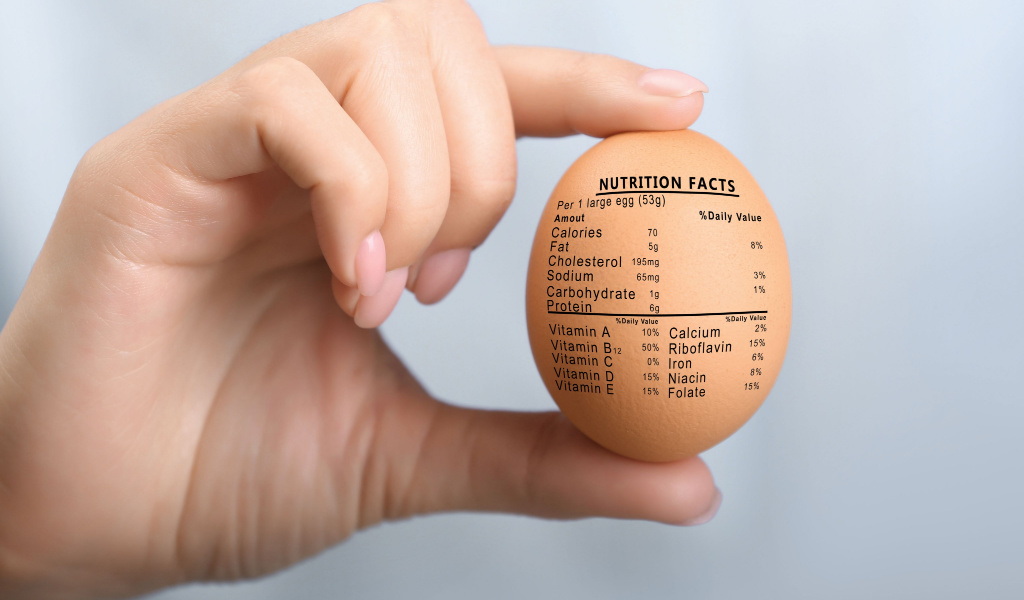Everyone loves eggs! But they are a lot more than a tasty breakfast option. There are a number of health benefits to eating eggs regularly, so let’s go through them one by one.

Eggs Offer Complete Protein
Protein is essential to your body, and a single egg has 6 grams of it, which is roughly 10% of your daily recommended intake of protein right there! What’s more, is that the protein in the egg has all 9 essential amino acids. These are vital for the functioning of your body, but your body is not able to produce them by itself – which is where eggs come in.
If you’re worried about the fat content in eggs, you can stick to just eating the white as it holds about half the protein and only a small portion of fat and cholesterol.
Eggs are Nutrient Dense
Nutrient-dense foods are those which have more beneficial properties, vitamins, minerals, amino acids, etc., than most other foods. This means that you’ll be getting more bang for your buck, i.e., more nutrients per calorie than usual. Plus, eggs don’t have any sugar or carbs, which is definitely another win!
Eggs, apart from being a high-quality protein, also contain phosphorus, selenium, choline, zinc, folate, vitamin B12, and a number of antioxidants. Choline, in particular, is another nutrient that most people don’t get enough of. Choline is essential to cell health, and choline deficiency is a serious problem – so it’s a good thing that eggs contain about 100 mg per portion!
Eggs are Affordable
Eggs are one of the cheapest forms of protein out there, making them much more affordable than their counterparts. At about 20 cents per serving, there are no other similarly-priced alternatives that also offer the same quality of protein and the complete set of amino acids that your body needs.
All you need to make a meal fit for a king is an egg, some whole grains, and some fresh fruit or vegetables!
Eggs Help You Stay Full
Having eggs for breakfast will help you stay full for longer, which means you can avoid those mid-morning hunger pangs which are where most people tend to falter on their diets. For instance, did you know that teenagers who ate an egg in the morning were found to eat 130 fewer calories on average at lunchtime?
Eggs are also great for portion control because they are designed that way by nature. Each egg comes to about 70 calories, so you know exactly what you’re getting. They’re also easy to prepare ahead and pack for lunch so you can take a healthy meal with you wherever you go. Being a complete protein and a natural appetite suppressant makes eggs a great addition to your weight loss diet.

Eggs are Heart Healthy
Eggs can get a bad rep for being high in fat. And while it’s true that eggs do have high levels of fat, there is a difference between ‘good’ cholesterol and ‘bad’ cholesterol, or HDL and LDL respectively. Eggs contain plenty of good cholesterol, which helps fight off the bad kind and lowers your triglycerides at the same time as well.
Eating eggs that have been enriched with certain compounds like omega-3 fatty acids may be the most beneficial to heart health. And studies have even shown that eggs can actually lead to a lower risk of heart disease.
In fact, a Chinese study that monitored people who ate an egg every single day found that they were less likely to develop heart disease by about 20% when compared to non-egg eaters. Another study found that people who ate eggs regularly were almost 30% less likely to die from a hemorrhagic stroke when compared to those who did not.
Eggs are Good for Your Eyes
Eggs are rich in vitamin A, which helps promote overall eye health. Given then vitamin A deficiency is the leading cause of blindness in the world, that’s certainly a good thing!
Furthermore, eating eggs regularly is particularly beneficial to you as you get older because they contain lutein and zeaxanthin. These help you avoid developing age-related eye diseases like cataracts and macular degeneration.
While green leafy vegetable like spinach and kale also contains lutein and zeaxanthin, eggs are a better source for them since their fat content makes it easier for your body to absorb and make use of these nutrients.
Eggs are Good for Your Brain
Vitamin D is one of the rarest nutrients to find in food, but did you know that eggs contain plenty of it? The yolk from one large egg contains 37 IU of vitamin D or 5% of the daily recommended intake.
Eggs yolks also contain choline, which is associated with reducing inflammation and promoting brain function, like maintaining memory and communications between brain cells. Vitamins B6 and B12 and folate are other nutrients found in eggs that contribute to brain health.




